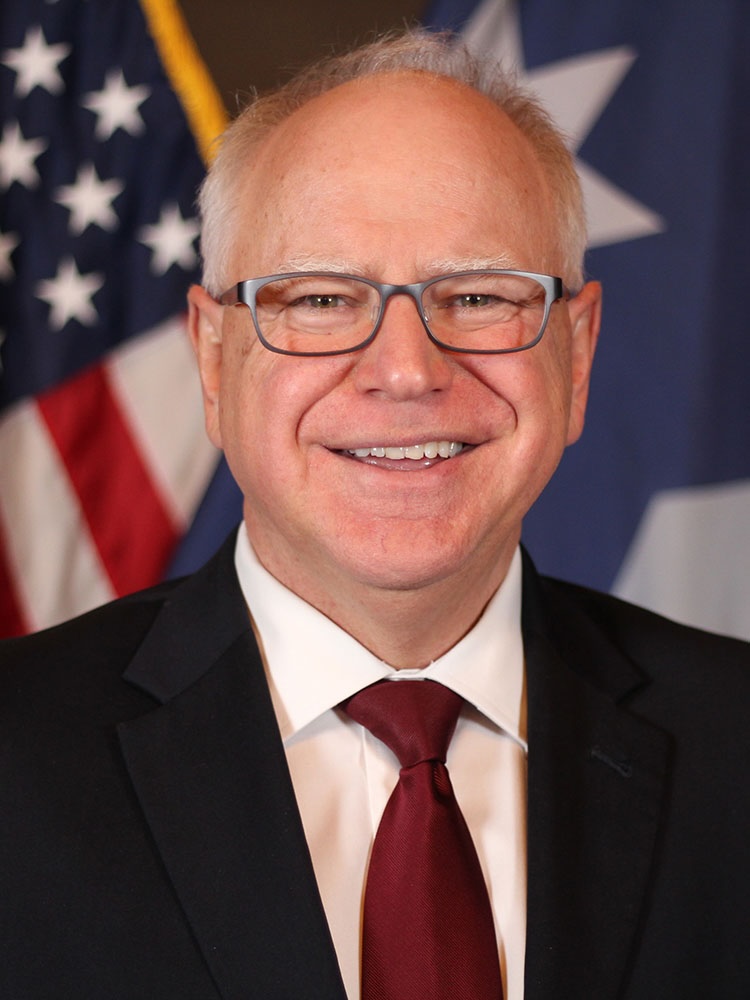With now only 26 days until the Presidential Election, the debates, both presidential and vice presidential, are over. Of course, with an unpredictable and ever-ready-to-shock candidate like Donald Trump, that pronouncement of no more debates may still be premature. But if it holds true, last Tuesday’s debate was a chance to see opposing VP candidates square off.
“I think the general rule,” said Metropolitan State University-Denver’s Rob Preuhs, “is ‘do no harm.’” Show up, answer questions and don’t make mistakes that might reflect negatively on who’s at the top of the ticket, he says. Preuhs, who heads the MSU-D political science department, says “I don’t know if they move the needle.”
Last Tuesday’s Vice Presidential Debate between Democrat Tim Walz and Republican JD Vance spent most of their 90-minute debate doing exactly that, trying to avoid gaffes. But there were a few times when each pegged the needle.

Photo courtesy: congress.gov
One occurred when Vance soberly praised his running mate for “peacefully” handing over power on January 20th,” while somehow neglecting the failed insurrection that took place two weeks before.
On January 6th more than 140 Capitol police were injured, many seriously, hundreds were arrested, one insurrectionist, Ashley Babbitt, was fatally shot as she tried to enter the building. It would neither be Vance’s last unforced error nor his biggest.
With Vance standing camera-left and Walz occupying the other side of the screen, the difference between the two ‘number twos’ could not have been more stark.
Vance, in a bespoke suit, exuded calm and answered moderators with an Ivy League touch, thoughtfully, with an almost surgical precision, though not always substantively nor factually.

Photo courtesy: mn.gov
Walz, on the other hand, appeared nervous, scribbling notes as Vance spoke, as if his written words would blunt Vance’s precisely measured answers. He also belied his ‘Midwest nice’ replacing it with an almost comically clumsy answer on where he was the day of China’s Tienanmen Square army versus protestors showdown Walz has stated repeatedly that he was an eyewitness. This time his answer changed. “I misspoke,” he admitted. He was neither there nor even in the country at the time. “Many times I talk a lot. I will get caught up in the rhetoric…I’m a knucklehead at times,” he pleaded.
Still, while both candidates mostly stuck to the party plea of ‘do no harm,’ answering in platitudes and sometimes dispensing with answers to, instead, pontificate on policy, the debate, said Preuhs, gave the country an idea of who each man was.
“You saw probably what Americans were hoping to see, that is, details on policy,” civility and “toned down attacks to some extent.” The candidates showed discipline, demonstrated collegiality, Preuhs said, and “were able to agree on some things…things that the American public is thinking about.”
Those items, though ranked differently between the parties, include the economy, immigration and women’s health, specifically, abortion. In particular was Vance’s claim that Democrats were OK with ‘after birth’ abortion.’ Birth abortion is infanticide in all states.
Vance’s boss has made immigration, perhaps, the single most prominent thread in his campaign with Haitians his most immediate target followed closely by Mexican, Central and South American immigrants.
Walz’s ticket partner, Kamala Harris, regularly touts a resurging economy while attacking Republicans and the Republican-spiked Trump Supreme Court for killing Roe v Wade, a law that for more than half a century allowed for legal abortions.
What the country witnessed in the Vice Presidential debate were two men, each hueing closely to the party line for nearly the entirety of the hour and a half exchange. But, when they did ‘move the needle,’ it moved and moved wildly.
It moved after Vance had returned to the subject of the Haitian immigrants in his home state of Ohio. Vance misstated, among other things, that Haitians were the cause for exploding housing prices and also mischaracterized their legal immigration status. When his microphone was turned off, and his misstatement clarified, he incredulously addressed moderator Margaret Brennen, “Margaret, the rules were that you weren’t going to fact check.”
Walz had his own moment when, in an effort to address guns and school shootings, he hurriedly blurted out that he “had become friends with school shooters.” His intention, he said, was that he had become ‘friends’ with young people who had experienced school shootings.
The evening’s takeaway, though, belonged to Vance. As the debate wound down and each candidate was rushing to make a final additional point, Walz turned to Vance and asked directly, “Did he (Trump) lose the 2020 election?”
“Tim,” Vance responded stoically. “I’m focused on the future.” The Senator’s answer, at least to his boss, may have been pitch perfect. To Walz, as he looked directly into the camera, “That is a damning non-answer.”
“Republicans are not letting go of that,” said MSU-D’s Preuhs. “It still drives a lot of Republicans to the polls,” witness the fact that 90 percent of Republicans are still concerned about voter fraud. Still, it is things like this, said Preuhs, that “motivate the base.”
Courts, more than 60, have confirmed that the 2020 election was fair and transparent, not entirely perfect and without a glitch or two as most national elections usually are, but well good enough to be considered accurate.


